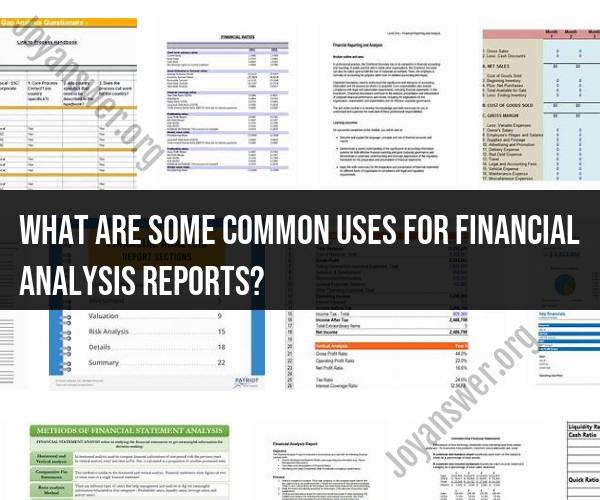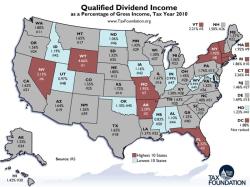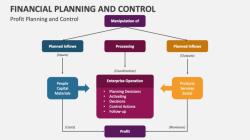What are some common uses for financial analysis reports?
Financial analysis reports have various practical applications in business, finance, and investment. Here are some common uses:
Investment Decision-Making: Investors, whether individuals or institutions, use financial analysis reports to assess the financial health and growth potential of companies before making investment decisions in stocks, bonds, or other securities.
Credit Risk Assessment: Lenders, such as banks and financial institutions, rely on financial analysis reports to evaluate the creditworthiness of borrowers when considering loan applications. This helps them determine the interest rates and terms for loans.
Mergers and Acquisitions (M&A): Companies involved in M&A activities use financial analysis reports to assess the financial strength and potential synergies of target companies. This informs their decision to buy, sell, or merge with other businesses.
Internal Performance Evaluation: Companies use financial analysis reports to assess their own financial performance and identify areas for improvement. This can involve comparing financial data across different periods to track progress.
Budgeting and Forecasting: Financial analysis reports assist in the budgeting process by providing historical financial data and insights into future trends. This helps organizations set realistic financial goals and allocate resources effectively.
Risk Management: Financial analysis reports are essential for identifying financial risks, including liquidity risk, credit risk, and market risk. Businesses can then develop strategies to mitigate these risks.
Valuation of Assets: Asset valuation, whether for accounting purposes or in preparation for a sale, relies on financial analysis reports to determine the fair market value of assets such as real estate, machinery, or intellectual property.
Investor Relations: Companies prepare financial analysis reports to communicate their financial performance to shareholders, analysts, and potential investors. These reports help maintain transparency and build investor confidence.
Legal Proceedings: Financial analysis reports may be used as evidence in legal disputes, such as cases involving bankruptcy, contract disputes, or shareholder lawsuits, to support financial claims and decisions.
Strategic Planning: Businesses use financial analysis reports to inform their strategic planning processes. This includes setting growth targets, expansion plans, and identifying areas of cost reduction.
Tax Planning: Tax professionals use financial analysis reports to determine tax liabilities, deductions, and credits, helping individuals and businesses optimize their tax strategies.
Public Policy and Regulation: Government agencies and policymakers use financial analysis reports to assess the financial stability and compliance of businesses, particularly in regulated industries like banking and healthcare.
Educational Purposes: Students and professionals studying finance, accounting, and business use financial analysis reports as case studies to learn about financial analysis techniques and principles.
Financial analysis reports play a critical role in decision-making across various sectors, providing valuable insights into the financial performance and stability of organizations. The specific use of these reports depends on the goals and needs of stakeholders.













